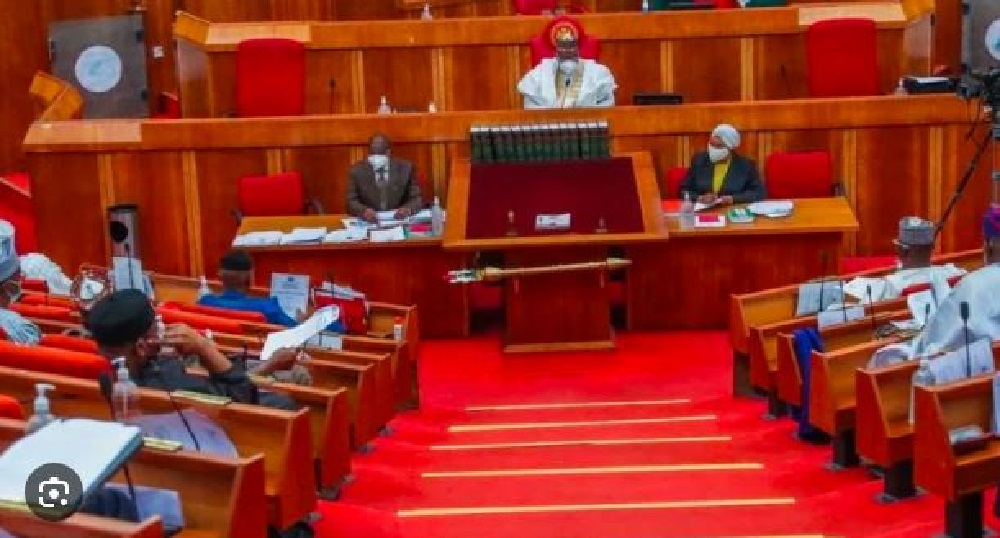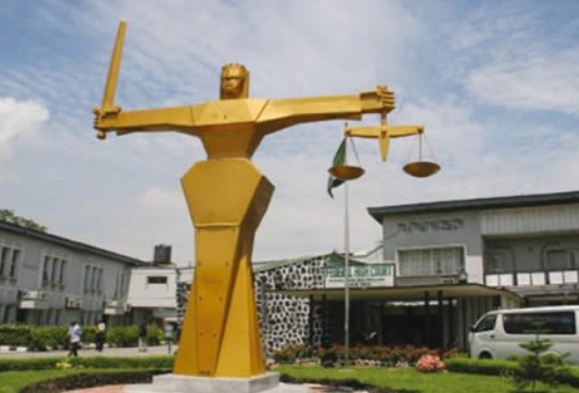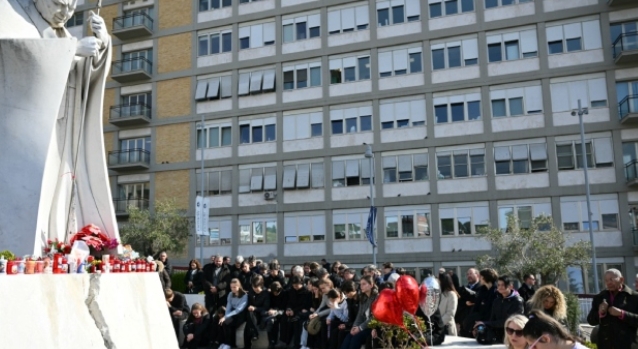News
Senate ignores Bill seeking to establish foreign exchange market in Nigeria

The Senate has declined to approve a Bill seeking to establish a foreign exchange market in Nigeria.
The bill sponsored by the Chairman, Senate Committee on Finance, Senator Sani Musa (APC Niger East), also sought to make provisions for the control, monitoring and supervision of transactions conducted in the Foreign Exchange Market.
The proposed law entitled, “The Foreign Exchange (Control And Monitoring) Bill, 2024 (SB. 353) was read for the first time on Tuesday, February 20, 2024.
Presenting his Lead debate, Musa described the bill as an important legislation that seeks to repeal the Foreign Exchange (Monitoring and Miscellaneous Provision) Act, Cap. F34, Laws of the Federation of Nigeria, 2004.
Musa indicated that the proposed law would provide for the regulation, monitoring and supervision of the transactions conducted in the market and for related matters.
According to him, it would also contribute to the sound development of the National economy by striving to facilitate foreign transactions and maintain an equilibrium of balance of International payments.
He said, “The Bill seeks to stabilize the value of currency by ensuring the liberalization of foreign exchange transactions to maintain an equilibrium of balance of International payments.
“It will also stabilise the value of currency by ensuring the liberalization of foreign exchange transactions and of other foreign transactions by revitalizing market functionality.
“The Bill attempts to expand Section (1) of the existing Act to incorporate three new provisions to make for clarity and to empower the Central Bank of Nigeria to administer, control and manage all dealings and transactions in relation to foreign exchange matters.
“The newly introduced clauses will enable the CBN to determine the basic exchange rate of purchase and sale of foreign exchange.
“Clause 6 of the Bill introduces New Sub-clauses (2), (4) and (5) which require authorised dealers to render returns to the CBN on sources of foreign exchange in excess of USD 10,000 and utilisation of same.
“It also requires authorized dealers obtain prior approval of the CBN when seeking to import foreign currency notes.
“Part Ill of the Bill makes elaborate provisions for the grant of a licence to carry on business dealings in foreign exchange. In this part, provisions were made for refusal of licence, suspension or revocation of licence, review and appeal.
“Clause 18 (1) (a) and (b) were added to expand the scope of dealers in the market and where funds are purchased from the Bank. The market rate may be subject to rules and regulations prescribed by the Bank.”
Musa added that with the bill, the operation of domiciliary account shall be as prescribed by the Bank and that the powers of the CBN have been widened to prescribe how foreign exchange may be accepted for the payment for goods and services in Nigeria.
The Bill when passed into law, according to Musa, will contribute to sound development of national economy, facilitate foreign transactions and most importantly, and stabilize the value of the currency by ensuring the liberalization of foreign transactions and revitalizing market functionality.
Most senators in their various contributions expressed the fears that a fresh legislation seeking to monitor or control the activities of the foreign exchange market apart from what the CBN was doing, could be counter productive.
Some of the senators who expressed serious reservations over the proposed law are, Solomon Adeola (Appropriation Committee Chairman); Tokunbo Abiru (Chairman, Banking, Insurance and other Financial Institutions panel; and Aliyu Wadada (Chairman, Senate Public Account Committee) among others.
For instance, a former accountant general of the Federation who is now the senator representing Gombe North, Ibrahim Dankwambo, noted that the law, if passed would confuse Nigerians.
He was of the opinion that any further law aimed at regulating the foreign exchange market should come from the executive arm of government to avoid crisis in the sector.
Also contributing, the Senator Adams Oshiomhole, said, “we have to be careful because we cannot speculate.
Anything done in this house, Nigerians will take it very seriously, because we have the power to make laws.
“Senators who have spoken, had summarized and amplified meticulously, the contradictions and negative implications of passing the law.
“I believe that the Bill should not attract further hearing because we are trying to take over the monetary policy regulations of the CBN of we go ahead with it.
“If the executive arm of government likes, let them bring a Bill to further strengthen the regulatory powers of the CBN. It is not our work.”
The President of the Senate, Godswill Akpabio, who presided over the session, urged Musa to withdraw the proposed law for further consultations but the senator refused to do so.
Akpabio called for voice vote to determine it’s approval or rejection for second reading and majority of the federal lawmakers voted against it.
News
Court orders reinstatement of fired Lagos Assembly Clerk, Onafeko

By Kayode Sanni-Arewa
The National Industrial Court sitting in Lagos has ordered the reinstatement of the fired Clerk of the Lagos State House of Assembly, Olalekan Onafeko.
The order follows an ex parte application to the Court made by Onafeko through his counsel, Yusuf Nurudeen, in a case he filed against Lagos State Government, Lagos State Civil Service Commission, Lagos State House of Assembly Service Commission, The Speaker, Lagos State House of Assembly, Attorney-General of Lagos State and Mr. Ottun Babatunde.
Onafeko was the Clerk of the House before January 13 when Hon. Mudashiru Ajayi Obasa was removed as Speaker, with the then Deputy Speaker, Mojisola Lasbat Meranda elected as the new Speaker.
Obasa’s removal, a decision that sparked controversy within the Lagos House and the ruling All Progressives Congress (APC), also led to Onafeko losing his position, with Babatunde Ottun appointed as his acting replacement.
The claimant in the suit marked: NICN/LA/23/2025 sought for an interim injunction restraining the six defendants from parading any individual including Babatunde as the clerk pending the hearing of the motion on notice for Interlocutory injunction already filed in the suit.
Granting the application, Justice M. N. Esowe in an ex parte order directed that Babatunde should cease to parade himself as Clerk
Esowe ordered that that what was in place in terms of the person in the saddle of the Clerk Office prior to the crisis rocking the House of Assembly should now prevail.
“That both parties shall maintain the peace and status quo ante bellum until the motion on notice is heard and determined,” Esowe ordered.
The judge slated the hearing of the motion on notice for March 3, 2024.
News
Worldwide Prayers For ‘Critically’ Sick Pope Francis

By Kayode Sanni-Arewa
Pope Francis spent his tenth day in hospital Sunday as Catholics around the world prayed for his recovery, the day after the Vatican warned the 88-year-old’s condition was “critical”.
The Argentine pontiff, who is being treated for double pneumonia, suffered a prolonged asthma-style attack on Saturday and required blood transfusions for a low platelet count.
On Sunday morning the Holy See said “the night passed peacefully, the pope rested” — indicating no repeat of the crisis the previous day, Vatican sources said.
But Francis, who had part of a lung removed when he was a young man, is still receiving oxygen through a tube in his nostrils in the papal suite at Rome’s Gemelli hospital.
In a message published Sunday but written in the past few days, the Jesuit thanked hospital staff and said he had confidence in his treatment.
“I am confidently continuing my hospitalisation at the Gemelli Hospital, carrying on with the necessary treatment — and rest is also part of the therapy!” he said.
“I ask you to pray for me,” he concluded in the text published in lieu of his weekly Sunday Angelus, which he normally delivers from a window overlooking St Peter’s Square.
People pray at the feet of a statue of John Paul II outside the Gemelli hospital where Pope Francis is hospitalized for pneumonia in Rome on February 23, 2025. (Photo by Alberto PIZZOLI / AFP)
Francis, who has been head of the Catholic Church since 2013, was admitted on February 14 initially with bronchitis, but his condition has deteriorated since then.
In its evening update Saturday, the Vatican warned his “condition continues to be critical, therefore the pope is not out of danger”.
It said Francis was alert and “spent the day in an armchair even if he was suffering more than” the day before.
It said he had a “prolonged asthmatic respiratory crisis, which also required the application of high-flow oxygen”.
Daily blood tests also “showed thrombocytopenia, associated with anaemia, which required the administration of blood transfusions”, it added.
Thrombocytopenia is a condition that occurs when the platelet count in the blood is too low, which can cause trouble stopping bleeding.
Blood or platelet transfusions, delivered via an intravenous (IV) line, are given to people who are either bleeding heavily or at very high risk of bleeding, according to the US National Institutes of Health (NIH).
“The pope gets worse,” headlined Italy’s Corriere della Sera newspaper on Sunday, while La Repubblica described it as the “darkest day” at the Vatican.
Well-wishers have been leaving candles outside the Gemelli since Francis was admitted, and a special mass was planned for Sunday evening in Rome.
“I am praying for him, for his health, because he is a special person for all of us,” Italian teacher Ilde Zito told AFP at the hospital.
Prayers and messages of solidarity also came in from among the almost 1.4 billion Catholics across the globe, alongside other Christians and world leaders.
In the cathedral of Buenos Aires, where Francis was once archbishop, TV screens at the entrance showed images of then Jorge Bergoglio’s good works, and the priest held a special mass.
“He is strong, he has always been strong, but there is nature. I know he is very ill and old. I hope he recovers, but it makes me sad,” Hector Armando Diaz, 76, a retired sales clerk, told AFP there.
Across the world in Iraq’s northern city of Mosul, a former bastion of the Islamic State group that Francis visited in 2021, at least a dozen churches also held prayers for him.
“This is the least we can do to express our solidarity, love, and appreciation for this great person,” said university professor Adnan Hadi.
Mexico’s president, Claudia Sheinbaum, offered her hopes on social media for a speedy recovery for the “great humanist” Francis, the first pope from the Americas.
Francis’s continued hospitalisation has sparked huge concern about his health but also speculation about whether he might step down.
He has always left the door open to following his predecessor, Benedict XVI, who in 2013 became the first pope since the Middle Ages to resign.
But he has repeatedly said it was not the time.

The pope maintains a punishing work schedule. He carried out a mammoth 12-day tour to the Asia-Pacific in September, but has suffered increasing health issues.
He underwent colon surgery in 2021 and an operation for a hernia two years later. He is overweight and has constant hip and knee pain, which forces him to use a wheelchair.
AFP
News
Liverpool thrash Man City, Go 11 Points Clear

By Kayode Sanni-Arewa
Liverpool took a big step to winning the Premier League, crushing an uninspiring Manchester City in a showdown on Sunday.
Mohamed Salah stole the show, scoring one and providing an assist to send Liverpool 11 points clear at the top of the table although they have played a game more.
The Egyptian opened the scoring with his 30th goal of the season before setting up Dominik Szoboszlai to double the lead before half-time.
Just days after exiting the Champions League to Real Madrid, this was another sobering defeat for the dethroned English champions, who are now 20 points adrift of the leaders.
So often during Pep Guardiola’s glorious reign, Liverpool have come up just short in English football’s great rivalry of recent years.
However, their time to match Manchester United’s record of 20 English top-flight titles now appears just months away in Arne Slot’s first season in charge.
Arsenal’s shock 1-0 home defeat to West Ham on Saturday had eased the pressure on Liverpool, that had built after dropping points in two of their last three games at Everton and Aston Villa.
A trip to the Etihad has for so long been the stiffest test of all, but City’s defensive frailties were easily exposed and they also badly missed the presence of the injured Erling Haaland in attack.
Liverpool, by contrast, had their talisman fit and firing as Salah took his staggering tally this season to 25 goals and 16 assists in 27 Premier League appearances.
However, their time to match Manchester United’s record of 20 English top-flight titles now appears just months away in Arne Slot’s first season in charge.
Arsenal’s shock 1-0 home defeat to West Ham on Saturday had eased the pressure on Liverpool, that had built after dropping points in two of their last three games at Everton and Aston Villa.
A trip to the Etihad has for so long been the stiffest test of all, but City’s defensive frailties were easily exposed and they also badly missed the presence of the injured Erling Haaland in attack.
Liverpool, by contrast, had their talisman fit and firing as Salah took his staggering tally this season to 25 goals and 16 assists in 27 Premier League appearances.
The Egyptian fired the visitors in front on 14 minutes thanks to a brilliantly executed set-piece routine.
Alexis Mac Allister’s corner was flicked by Szoboszlai into Salah’s path and his shot deflected off Nathan Ake past the despairing dive of Ederson.
At the other end, City’s own Egyptian international showed his ability to finish, but Omar Marmoush had strayed offside before being played in by Phil Foden.
City winger Jeremy Doku was skipping past Trent Alexander-Arnold at will, yet the Belgian consistently failed to deliver a telling cross or shot.
Salah was not so forgiving as he raced onto a long ball over the top and teed up Szoboszlai to wrong-foot Ederson.
The final outcome could have been much more humiliating for City had Liverpool had been as accurate on the counter-attack after the break.
Curtis Jones had a third goal ruled out by a VAR review for offside after Szoboszlai just failed to time his run through the heart of the City defence.
Ederson was forced into a stunning save from Luis Diaz and only a brilliant last-ditch tackle from Abdukodir Khusanov denied Szoboszlai a second.
Marmoush scored a hat-trick in last weekend’s 4-0 win over Newcastle and remained a lively threat as he flashed another effort across the front of Alisson Becker’s goal.
But City lacked the end product to make nearly 70 percent possession count.
Despite an eighth league defeat of the season, Guardiola’s men remain in fourth and will be confident of securing their place in the Champions League next season with a top-five finish likely to be enough.
However, after an unprecedented run of four consecutive titles, City look like yesterday’s team with Liverpool now champions in waiting.
-

 Metro21 hours ago
Metro21 hours agoInsecurity! Gunmen invade church, slash pastor’s 2 fingers
-

 Metro21 hours ago
Metro21 hours agoFire engulfs MTN office in Oyo
-

 News7 hours ago
News7 hours agoBabangida’s Book is filled with distorted facts, collection of lies, says Dele Farotimi
-

 Foreign21 hours ago
Foreign21 hours agoPentagon set to sack 5400 staff as attack hits Trump’s downsizing plan
-

 News12 hours ago
News12 hours agoREVEALED! Gov Fubara Accused of Paying N4.8Bn Monthly to Ikenga Ugochinyere
-

 Metro21 hours ago
Metro21 hours agoDanger averted as police rescued six kids from collapsed building
-

 Sports21 hours ago
Sports21 hours agoAtalanta coach makes a U-turn says he never knew his comment could offend Lookman
-

 News7 hours ago
News7 hours agoNDPC Finally Secures NJI’s Support for Data Privacy Right in Nigeria







